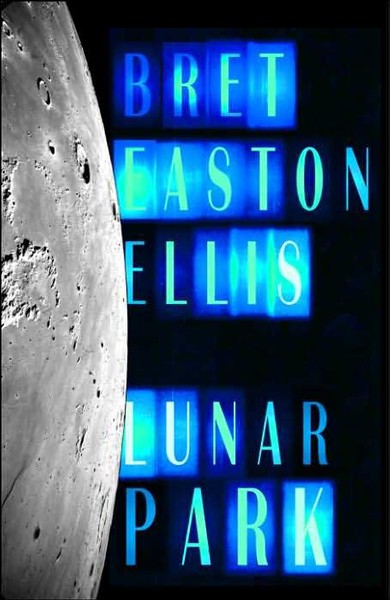
Lunar Park
I make a lot of recommendations. Anyone who knows me knows this. For instance, I saw Hitch last night. I would recommend that to anyone who watches movies casually. Otherwise, I doubt you’d like it. (Eva Mendes is quite good in it, however.)
But Bret Easton Ellis novels, I’ve really just usually kept to myself.
I mean, from time to time, I’ll casually say to someone: “Hey, you really should check out American Psycho. It’s a pretty amazing read.” Or I’ll say, “Yeah, Ellis wrote Less Than Zero when he was a teenager, and that alone should blow you away.” But I typically only truly recommend his books to people who I know won’t get freaked out after they read them (particularly American Psycho) because I sometimes worry about what people might think of me when they know I love them. They’re chock full of apathy, depravity, loveless and arbitrary sex, ritualistic murder, terrorism, banality, absurdity, wealth and pop culture – the worst parts of the lives of kids who grow up, live in the suburbs and go to college today. (Kids I’ve met from Montgomery County, particularly Rockville and Bethesda, often remind me of Ellis’ characters.)
Just minutes ago, I finished reading his new novel, Lunar Park, and I was immediately inspired to recommend it to everyone I know, not unlike the moments immediately after the first time I saw Robert Redford’s Ordinary People or (and don’t punch me here, please) Good Will Hunting. They’re about f—ed up people, but they’re likeably f—ed up. You hope for them. Lunar Park, in some ways, is like that, and it’s what makes it noteworthy.
Ellis’ previous novels were about people who were lost, whose morals had eroded past the point of reproach. They were, in many ways, according to Ellis, somewhat autobiographical, which made Ellis as interesting as many of his notorious characters like Patrick Bateman, who, in American Psycho, traipsed around Manhattan seducing women, cutting them into little pieces. He also killed homeless people and little dogs. Meanwhile, he was a rich businessman, who was slowly deteriorating as a result of his obsession with wealth and status in the 1980s. Ellis said he created Bateman in the image of his father.
Ellis gave you glimpses of characters who were spiraling downward and had whizzed past opportunities for redemption perhaps years beforehand. His stories interested you if you related to them, if you saw what he saw in today’s youth – the lack of restraint, the recklessness, the addiction, the apathy. But Ellis seemed to be somewhat of a hypocrite, in interviews at least. He seemed to be writing about himself in many ways. He seemed like an author who hated himself, hated his father, hated his friends and could do nothing else but write brilliantly about it. I always wondered if Bret Easton Ellis, in person, would disgust and sadden me as effectively as Patrick Bateman did.
In Lunar Park, Ellis is unabashedly writing about himself – a fictional self, though a self who seems to struggle with the same problems as the real Ellis does. Lunar Park’s Ellis has never reconciled with his dead father, whose cremated remains sit in a deposit box in a Bank of America in Sherman Oaks, Calif. He is a cocaine addict, just like the real Ellis presumably was (or is). In relationships, he is noncommittal. But in Lunar Park, Ellis has a family: a movie star wife named Jayne Dennis, a son Robby and a daughter Sarah. He’s moved to a house in the suburbs and has taken a professorship at a local liberal arts college, teaching creative writing to twentysomethings who can’t really do it. He is a miserable, reluctant father.
And then everything that seems on the verge of falling apart finally falls. Ellis starts seeing someone driving his dead father’s old Mercedes after a Halloween party. His daughter’s toy bird starts malfunctioning, coming to life after it’s been turned off and attacking animals around the house. And the house itself seems to be slowly transforming into the house he grew up in outside Los Angeles.
Then, someone starts recreating the murders of American Psycho throughout the suburbs and little boys his son’s age start dissapearing. It all sounds a little Stephen King, yes, but at Lunar Park’s core, there are revelations about the importance of family, fathers and sons and parenting in 2005. Rather than just sounding the alarm, showing how severely we’ve deteriorated, Ellis seems committed in Lunar Park to actually saying something about it, and himself, in the process.
The Bret Easton Ellis in Lunar Park is the first Bret Easton Ellis character I’ve ever hoped for, making it something I’m inclined to recommend to people, including my mother, who would probably get depressed reading American Psycho.
But it’s not like Ordinary People. You don’t get the whole Bret Easton Ellis story in Lunar Park. For the book to work, you’re going to have to go back, sift through the sadness of Less Than Zero, the depressing college years of Rules of Attraction, and the ’80s-inspired violence and rage in American Psycho to truly appreciate the growth in Lunar Park.
Otherwise, Lunar Park is just about some writer in the suburbs who was screwed up by his father, who cheated on his wife, who didn’t know how to be a parent until Stephen King stepped in and changed things. But that honestly might be enough to like this book on its own.
Bret Easton Ellis will appear Wednesday at 7 p.m. at Olsson’s Books & Records at Penn Quarter/The Lansburgh, 418 7th St., NW, Washington DC for a book signing and reading.
Contact reporter Jonathan Cribbs at cribbsdbk@gmail.com.



